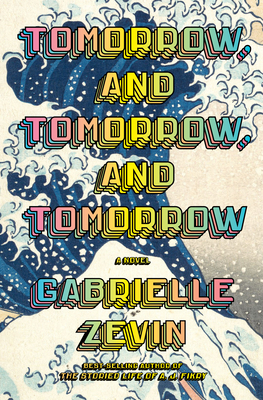 Tomorrow, and Tomorrow, and Tomorrow by Gabrielle Zevin
Tomorrow, and Tomorrow, and Tomorrow by Gabrielle Zevin Format: eARC
Source: supplied by publisher via Edelweiss
Formats available: hardcover, large print, ebook, audiobook
Genres: literary fiction, relationship fiction
Pages: 416
Published by Knopf Publishing Group on July 5, 2022
Purchasing Info: Author's Website, Publisher's Website, Amazon, Barnes & Noble, Kobo, Bookshop.org, Better World Books
Goodreads
In this exhilarating novel by the best-selling author of The Storied Life of A. J. Fikry two friends--often in love, but never lovers--come together as creative partners in the world of video game design, where success brings them fame, joy, tragedy, duplicity, and, ultimately, a kind of immortality.
On a bitter-cold day, in the December of his junior year at Harvard, Sam Masur exits a subway car and sees, amid the hordes of people waiting on the platform, Sadie Green. He calls her name. For a moment, she pretends she hasn't heard him, but then, she turns, and a game begins: a legendary collaboration that will launch them to stardom. These friends, intimates since childhood, borrow money, beg favors, and, before even graduating college, they have created their first blockbuster, Ichigo. Overnight, the world is theirs. Not even twenty-five years old, Sam and Sadie are brilliant, successful, and rich, but these qualities won't protect them from their own creative ambitions or the betrayals of their hearts.
Spanning thirty years, from Cambridge, Massachusetts, to Venice Beach, California, and lands in between and far beyond, Gabrielle Zevin's Tomorrow, and Tomorrow, and Tomorrow is a dazzling and intricately imagined novel that examines the multifarious nature of identity, disability, failure, the redemptive possibilities in play, and above all, our need to connect: to be loved and to love. Yes, it is a love story, but it is not one you have read before.
My Review:
That “Love is all there is, is all we know of Love” is from the pen of Emily Dickinson, a poet who was near and dear to Sadie Green’s heart. But Dickinson’s poem, as ineffably true as it is, does not specify the type of love to which it refers. It’s often taken to mean romantic love. In this story, while there is plenty of love to go around, the form of love at its heart is not Eros but Philia, the love of friends and equals.
The relationship that stars, and sings, and occasionally weeps with grief or is frozen by neglect and misunderstanding in Tomorrow and Tomorrow and Tomorrow is the 30 year friendship and partnership between Sam Masur and Sadie Green, who meet at a children’s hospital in New York when they are on the cusp of adolescence.
They are both stuck at that hospital. Sam is about to undergo yet another surgery to stabilize the damage to his foot that he incurred during the accident that killed his mother. Sadie has been shuffled out of her sister’s room because Alice, who has leukemia, is also being a temperamental bitch to her younger sister – and their parents are indulging Alice because, after all, she has cancer and Sadie is healthy.
Sam and Sadie discover that they both LOVE computer games. Love to play them, love to talk about them, love to share them with anyone who will listen – which mostly means each other.
But Sam thinks Sadie is his friend – and he’s not wrong. But Sadie starts out thinking that helping Sam while away the hours is her public service project for her upcoming Bat Mitzvah. The revelation of her deception breaks them in two.
Until they meet again in Boston, where Sadie is now going to Harvard while Sam is at MIT. And their friendship knits itself and them back together as though they had never parted – although the faultline created in that first and biggest deception lies deeply buried and waiting to erupt again.
The friendship between Sam and Sadie, in all its depth and all its incipient heartbreak, is rooted in their shared love of gaming. It’s the mid-1990s, and computer and video gaming is at that golden age where it has become a big business but the games can still be built by just a few dedicated people who are willing to eat, sleep and breathe the game until it comes out or they burnout – whichever comes first.
Sam and Sadie, with the help of Sam’s roommate Marx, decide to make a game. They sacrifice their senior year in college to do it. And the rest, as they say, is history. Just not the one anyone would expect.
Escape Rating B-: Everyone seems to love this book. The ratings on both Goodreads and Amazon are at 4.4 out of 5. I’m saying this up front because I have to say that I’m just not seeing it – or at least not seeing it the way that so many people seem to.
For me, at least, this one sits on the border between relationship fiction and literary fiction, with a bit too much of a tilt towards the litfic side – which is not my personal preference.
At the same time, I loved the parts about the video game industry. I played many of the games referred to in the story, and still play video games. The way their company starts out, how it develops, the fights, the ups and the downs, reminded me fondly of the reporting on the industry at the time.
But the video game industry is used more as a vehicle than anything else. It’s about the work of being an entrepreneur at a time when the work can be done by a small, intimate group who live for each other, die for each other, and breathe each other’s air, day in and day out until the work is done.
And then they start all over again because the work is an integral part of the love they have for each other. And it’s also the central point of gaming as a whole, that there’s always another game, another life, and that endings are never permanent. Until they are.
More than anything else, Tomorrow is the story of a 30-year friendship between two very scared and flawed people who love each other and more importantly know each other more and better than anyone else in their lives. Even though they grow apart as often as they grow together, they’re still in reference to each other no matter what.
So I loved the video game parts, both the playing of them and the discussion of them and especially the creation of them. And the way their friendship ebbed and flowed turned these characters into real people. Almost as if they were the player characters in a game that I was playing rather than a book I was reading.
But the last third of the book felt rather more literary fiction than relationship as the situation got bleaker and bleaker and it seemed as if there was no light at the end of that tunnel that the story was dragging towards. It read like the full quote from Macbeth that the title is taken from was a bit too much of a metaphor for the entire book.
Tomorrow, and tomorrow, and tomorrow,
Creeps in this petty pace from day to day,
To the last syllable of recorded time;
And all our yesterdays have lighted fools
The way to dusty death. Out, out, brief candle!
Life’s but a walking shadow, a poor player,
That struts and frets his hour upon the stage,
And then is heard no more. It is a tale
Told by an idiot, full of sound and fury,
Signifying nothing.
Clearly, I had mixed feelings about the whole thing, and probably will for quite some time. There is one thing about the story, or at least about something that is often said about it, about which I have no mixed feelings at all.
There have been quite a few comparisons drawn between Tomorrow and Ready Player One, including among my reading group which probably led me astray. It seems like an easy choice, as both stories are imbued with nostalgia for what are now classic games. But Ready Player One is an action-packed adventure story. It has a pace and a verve that keep the reader compulsively following the action. Tomorrow is a much quieter, slower-paced story. Obviously, both of them have massive audiences. And there will be some overlap between those audiences. But readers coming into Tomorrow thinking it will be like Ready Player One are going to be in for one hell of a disappointing shock and probably vice versa. An opinion which is very much my 2 cents and your reading mileage may vary.

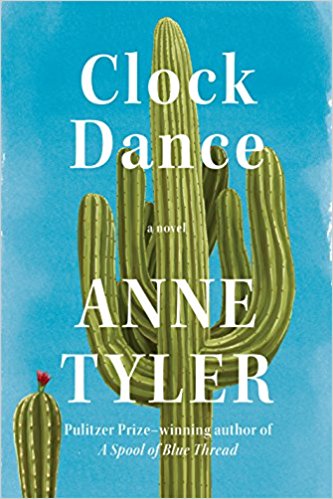 Clock Dance by
Clock Dance by 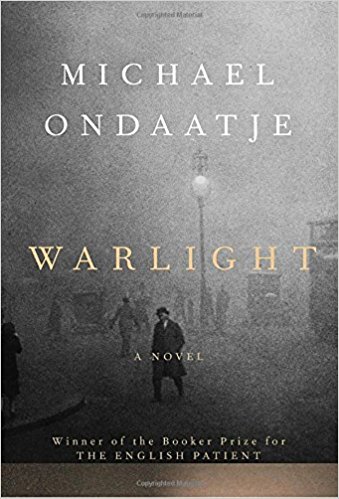 Warlight by
Warlight by 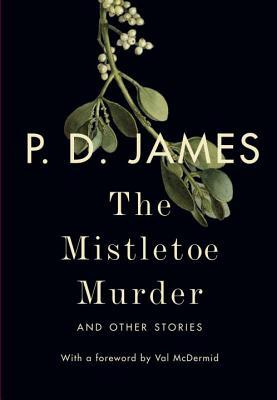 The Mistletoe Murder: And Other Stories by
The Mistletoe Murder: And Other Stories by 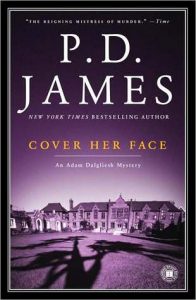 The final two stories were the Dalgliesh stories. The last story first, because it comes first in the character’s history, even before the first published book in the series,
The final two stories were the Dalgliesh stories. The last story first, because it comes first in the character’s history, even before the first published book in the series,